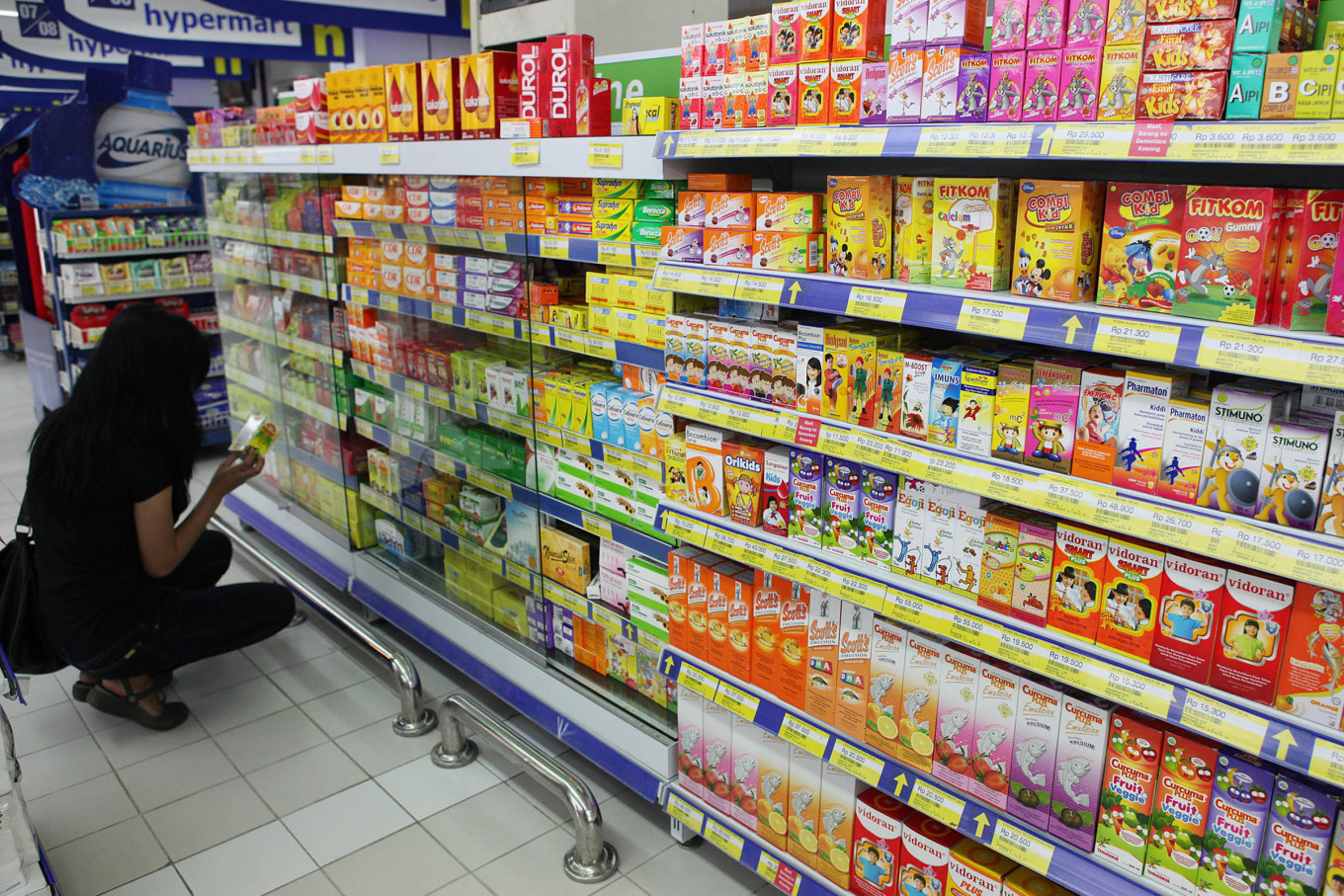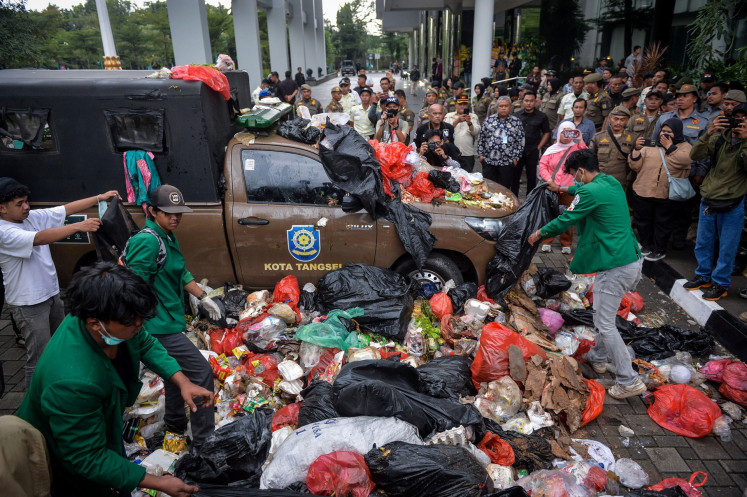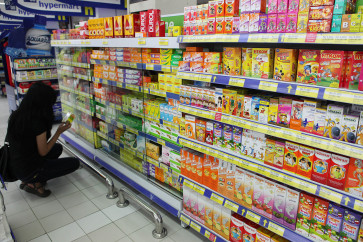Popular Reads
Top Results
Can't find what you're looking for?
View all search resultsPopular Reads
Top Results
Can't find what you're looking for?
View all search resultsAnalysis: Post-pandemic, pharma SOEs beset with financial problems
Change text size
Gift Premium Articles
to Anyone
 A consumers chooses drugs at Hypermart, Jakarta, Tuesday (26/03). Imports of pharmaceutical raw materials are estimated to increase by 15 percent in the first quarter of 2013 to US $ 335.8 million from the same period in 2012 of US $ 292 Million. Due to high demand for drugs in the domestic market. (JP/Nurhayati/Adi)
A consumers chooses drugs at Hypermart, Jakarta, Tuesday (26/03). Imports of pharmaceutical raw materials are estimated to increase by 15 percent in the first quarter of 2013 to US $ 335.8 million from the same period in 2012 of US $ 292 Million. Due to high demand for drugs in the domestic market. (JP/Nurhayati/Adi)
A
fter reaping profits at the height of the COVID-19 pandemic, Indonesia’s pharmaceutical industry is now facing a weakening economy. State-owned pharmaceutical companies have been hit hardest, with problems that include significant debt, expired vaccines and a high risk of bankruptcy. Private pharma companies, meanwhile, have booked positive performances.
According to Indonesian Pharmaceutical Association (GP Farmasi) executive director Elfiano Rizaldi, the change in the performance of pharmaceutical companies in the country is influenced by decreasing demand for medications and medical equipment that was previously rampant throughout the pandemic. During that time, pharmaceutical companies had acquired medications and medical equipment needed to deal with the pandemic, but many are now left spare as the country moves past the pandemic.
This is reflected in state-owned PT Indofarma (INAF), which has been struggling financially over the past years. In the first six months of this year, Indofarma had racked up Rp 120.3 billion in losses. From 2020 to 2022, the company had also booked consecutive losses of Rp 3.6 billion, Rp 37.5 billion and Rp 428.4 billion. Worse, Indofarma booked staggering debt of Rp 1.49 trillion, leaving the company in negative equity, and thus unable to get new loans. Consequently, the company cannot pay its obligations.
Recently, the company announced that it had resolved its debt payment obligations (PKPU) lawsuits filed by two of its business partners, PT Solarindo Energi Internasional and PT Trimitra Wisesa Abadi, on June 8. Indofarma owes the two companies Rp 17.1 billion and Rp 19.8 billion, respectively. In additon, other companies also still hold bills for Indofarma, including PT Widatra Bakti Laboratories, PT Catur Dakwah Crane Farmasi and PT Merapi Utama Pharma.
The Indonesia Stock Exchange (IDX) has placed Indofarma on a special monitoring board since August in an effort to protect investors. Indofarma stock prices dipped to one of their lowest levels in history at Rp 430 on Thursday, down from its highs of Rp 5,650 in January 2021 and Rp 6,500 in December 2018.
Another state-owned pharma company PT Kimia Farma (KAEF) is also in trouble. It booked a net loss of Rp 21.7 billion in the first six months of this year. For the whole period of last year, the company booked a net loss of Rp 206.3 billion. Kimia Farma currently bears the burden of unsold vaccines worth Rp 339 billion for the government’s Gotong Royong Vaccination program involving private businesses.
Kimia Farma president director David Utama claims that he is optimistic that the company can earn revenues of up to Rp 11 trillion and make a net profit of Rp 130 billion this year. However, with Kimia Farma’s unsold vaccines, the potential for the company to incur further losses looms.


















